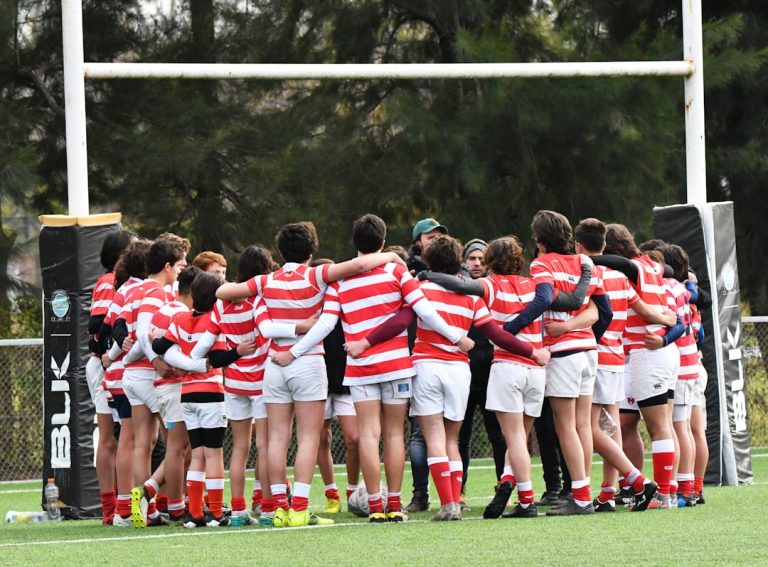
Teamwork is a crucial element in successful workplaces. Collaborative efforts towards shared objectives can yield powerful and significant outcomes. By combining diverse skills, knowledge, and perspectives, teams can generate more innovative and effective solutions.
This collaborative approach also cultivates a sense of unity and mutual support among team members, fostering a positive work environment that enhances morale and productivity. Efficient teamwork can significantly improve organizational productivity and efficiency. Effective collaboration and communication among team members often result in faster task completion and higher quality outputs.
This can lead to cost reductions for the organization and provide a competitive advantage in the market. Moreover, teamwork can contribute to increased job satisfaction and employee retention, as individuals feel valued and supported within their team structure. In contemporary fast-paced and complex work environments, the ability to work effectively in teams is increasingly important.
Many organizations utilize cross-functional teams, bringing together individuals from various departments or areas of expertise to address complex challenges. In such settings, the capacity to collaborate and communicate effectively with others is vital for success. Furthermore, as organizations become more globalized and interconnected, the ability to work with colleagues from diverse cultural backgrounds is essential.
Consequently, teamwork has evolved from a desirable skill to a critical competency for career advancement in modern workplaces.
Key Takeaways
- Teamwork is crucial for success in the workplace, as it allows for the pooling of diverse skills and perspectives to achieve common goals.
- Effective team players possess characteristics such as reliability, adaptability, and a positive attitude, which contribute to the overall success of the team.
- Building and maintaining trust within a team is essential for fostering a supportive and cohesive work environment.
- Successful communication strategies, such as active listening and clear, open communication, are key for effective teamwork.
- Conflict resolution and problem-solving skills are important for addressing and overcoming challenges that may arise within a team setting.
Characteristics of Effective Team Players
Strong Work Ethic and Accountability
Effective team players are committed to their work and take pride in delivering high-quality results. They are reliable and accountable, consistently meeting deadlines and fulfilling their responsibilities within the team.
Good Communication and Interpersonal Skills
Another important characteristic of effective team players is good communication skills. They are able to express their ideas clearly and listen actively to others. They are also adept at providing constructive feedback and resolving conflicts in a respectful and professional manner.
Collaborative and Supportive Mindset
Effective team players are adaptable and open-minded, willing to consider different perspectives and approaches to problem-solving. They are collaborative and supportive of their colleagues, willing to share their knowledge and skills with others, and actively seek opportunities to help their teammates succeed. They also demonstrate empathy and emotional intelligence, understanding the feelings and perspectives of others within the team.
Proactive and Initiative-Driven
Finally, effective team players are proactive and take initiative in identifying and addressing challenges within the team, rather than waiting for others to take the lead.
Building and Maintaining Trust within a Team

Trust is a foundational element of successful teamwork. Without trust, team members may be hesitant to share their ideas, take risks, or rely on one another for support. Building and maintaining trust within a team requires intentional effort and consistent behavior from all members.
One key aspect of building trust is demonstrating reliability and consistency in one’s actions. When team members consistently follow through on their commitments and deliver on their promises, trust is strengthened. Another important aspect of building trust is being transparent and honest in communication.
Team members should be open about their intentions, concerns, and challenges, as well as provide honest feedback to one another. This transparency helps to build credibility and fosters an environment of mutual respect within the team. Additionally, showing vulnerability and admitting mistakes can also help to build trust, as it demonstrates authenticity and humility.
Maintaining trust within a team requires ongoing effort and attention. It is important for team members to consistently demonstrate trustworthiness through their actions and communication. This includes being respectful of one another’s time and boundaries, as well as being supportive and empathetic towards one another’s challenges.
It also involves addressing any breaches of trust promptly and openly, in order to repair any damage and prevent further erosion of trust within the team.
Communication Strategies for Successful Teamwork
| Communication Strategies for Successful Teamwork |
|---|
| Active Listening |
| Clear and Concise Messaging |
| Regular Check-ins and Updates |
| Open and Honest Communication |
| Respectful and Constructive Feedback |
| Utilization of Multiple Communication Channels |
Effective communication is essential for successful teamwork. Clear and open communication helps to ensure that all team members are aligned on goals, roles, and expectations, as well as enables effective collaboration and problem-solving. One key communication strategy for successful teamwork is active listening.
Team members should strive to listen attentively to one another’s ideas and concerns, seeking to understand before being understood. This helps to foster empathy and respect within the team. Another important communication strategy is clarity in expressing ideas and expectations.
Team members should strive to communicate their thoughts and instructions clearly, using language that is easily understood by all members. This can help to prevent misunderstandings and ensure that everyone is on the same page. Additionally, using non-verbal communication such as body language and facial expressions can also enhance understanding and connection within the team.
Furthermore, effective communication in teamwork involves providing constructive feedback in a respectful manner. Team members should be able to give and receive feedback openly, focusing on specific behaviors or actions rather than personal characteristics. This can help to improve performance and strengthen relationships within the team.
Finally, establishing regular communication channels such as team meetings or check-ins can help to ensure that all members are kept informed about progress, challenges, and changes within the team.
Conflict Resolution and Problem-Solving in a Team Setting
Conflict is a natural part of any team setting, as individuals with different perspectives and working styles come together to collaborate. Effective conflict resolution is essential for maintaining a positive and productive team environment. One key strategy for resolving conflicts within a team is open communication.
Team members should be encouraged to express their concerns openly and respectfully, seeking to understand the perspectives of others before seeking resolution. Another important strategy for conflict resolution is finding common ground and seeking win-win solutions. Team members should strive to identify shared goals or interests that can serve as a basis for compromise or collaboration.
This can help to prevent conflicts from escalating into destructive power struggles or personal attacks. Additionally, seeking input from all team members in problem-solving can help to ensure that diverse perspectives are considered in finding solutions. Furthermore, effective conflict resolution involves managing emotions and maintaining professionalism.
Team members should strive to keep their emotions in check during conflicts, focusing on the issues at hand rather than personal attacks or defensiveness. It is also important for team leaders to model respectful conflict resolution behavior and provide guidance on how to address conflicts constructively. Finally, it is important for teams to learn from conflicts and use them as opportunities for growth and improvement.
Reflecting on past conflicts can help teams identify patterns or underlying issues that need to be addressed, as well as develop strategies for preventing similar conflicts in the future.
The Role of Leadership in Fostering a Collaborative Team Environment

Setting Clear Goals and Expectations
One key aspect of leadership in fostering collaboration is setting clear goals and expectations for the team. Leaders should communicate a compelling vision for the team’s work, as well as define roles and responsibilities clearly so that all members understand how they contribute to the team’s success.
Creating a Supportive and Inclusive Team Culture
Another important aspect of leadership in fostering collaboration is creating a supportive and inclusive team culture. Leaders should strive to create an environment where all team members feel valued and respected, regardless of their background or position within the organization. This can involve promoting diversity and inclusion within the team, as well as providing opportunities for all members to contribute their ideas and perspectives.
Providing Resources and Support
Furthermore, effective leaders provide resources and support for teamwork within the organization. This can include providing training on teamwork skills, as well as ensuring that teams have access to the tools and information they need to collaborate effectively. Leaders should also be available to provide guidance and support when conflicts arise or when teams face challenges in achieving their goals.
Tips for Mastering Teamwork in a Remote or Virtual Setting
In today’s increasingly digital world, many teams are working remotely or in virtual settings. Mastering teamwork in such environments requires unique strategies and approaches. One key tip for mastering teamwork in a remote or virtual setting is establishing clear communication channels.
Teams should use technology such as video conferencing, instant messaging, or project management tools to stay connected and informed about each other’s work. Regular check-ins or virtual meetings can help to ensure that all team members are aligned on goals and expectations. Another important tip for mastering teamwork in a remote setting is setting clear boundaries between work and personal life.
Remote work can blur the lines between professional and personal time, leading to burnout or disengagement from work. Team members should strive to establish routines that allow them to disconnect from work when needed, as well as communicate their availability to other team members so that they can respect each other’s boundaries. Furthermore, mastering teamwork in a remote setting involves building trust through consistent behavior and communication.
Team members should strive to demonstrate reliability and accountability in their work, as well as communicate openly about their challenges or needs for support. This can help to foster a sense of connection and support within the team despite physical distance. Finally, it is important for teams working remotely to find opportunities for social connection and relationship-building.
Virtual team-building activities or informal virtual gatherings can help to strengthen relationships within the team and create a sense of camaraderie despite physical distance. In conclusion, teamwork is an essential component of success in today’s workplace. Effective teamwork requires individuals with strong work ethic, good communication skills, adaptability, collaboration skills, empathy, emotional intelligence, proactivity among others characteristics that make them effective team players who contribute positively towards achieving common goals within an organization or company.
If you’re interested in exploring how teamwork plays a crucial role in professional environments, particularly in creative and culinary settings, you might find the article “Culinary Creations: Mastering the Art of Cooking with Cooks” quite enlightening. This piece delves into how chefs collaborate in the kitchen, sharing insights and skills to create exquisite dishes. Teamwork is not just about working together but also enhancing each other’s strengths in high-pressure environments. You can read more about it by visiting Culinary Creations: Mastering the Art of Cooking with Cooks.
FAQs
What are soft skills?
Soft skills are non-technical skills that relate to how you work and interact with others. They include communication, teamwork, problem-solving, adaptability, and leadership.
What is teamwork?
Teamwork is the collaborative effort of a group of people to achieve a common goal or complete a task. It involves working together, sharing responsibilities, and supporting each other to achieve success.
Why are soft skills important in teamwork?
Soft skills are important in teamwork because they enable individuals to communicate effectively, resolve conflicts, and collaborate with others. They also help in building trust, fostering a positive work environment, and achieving better results as a team.
What are some examples of soft skills in teamwork?
Examples of soft skills in teamwork include communication, active listening, empathy, conflict resolution, decision-making, adaptability, and leadership. These skills are essential for building strong relationships and working effectively with others.
How can one improve their teamwork skills?
One can improve their teamwork skills by actively listening to others, being open to feedback, communicating clearly, being supportive of team members, and being willing to collaborate and compromise. Additionally, seeking out opportunities for teamwork and practicing these skills can also help in improvement.






